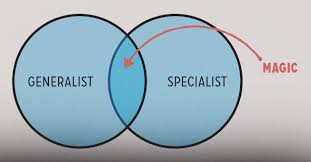Interpersonal communication is an important skill across all facets of your career. Whether you’re aware of it or not, interpersonal communication is present when you’re interviewing for a job, talking with your co-workers, or asking for a promotion.
Even when you do well across the ‘hard’ skills, such as data analysis, accounting, programming, you still won’t fare as well if your “soft” business skills aren’t up to snuff. And a big ‘soft skill’ is your interpersonal communication – the ability to empathize and communicate with others in a personal, positive way will help you work effectively with your co-workers, team members, and your leaders. Once you have an understanding of how best to articulate yourself both verbally and through non-verbal cues, you’ll be better off professionally (and in your personal life!) ... read more


